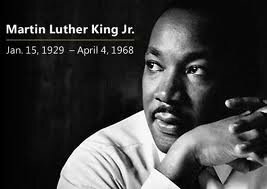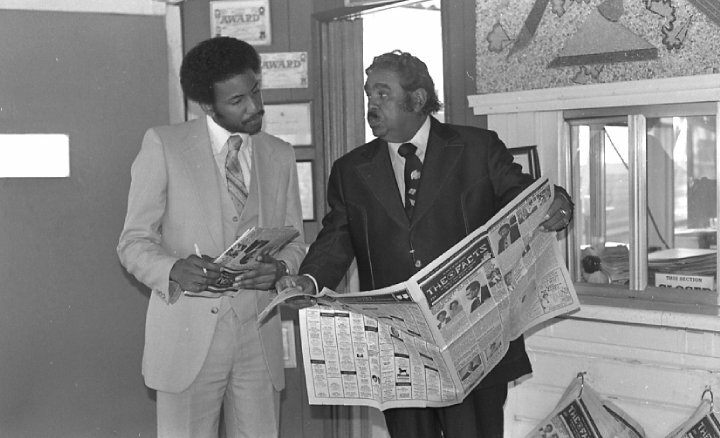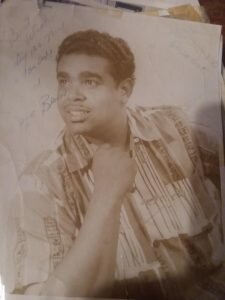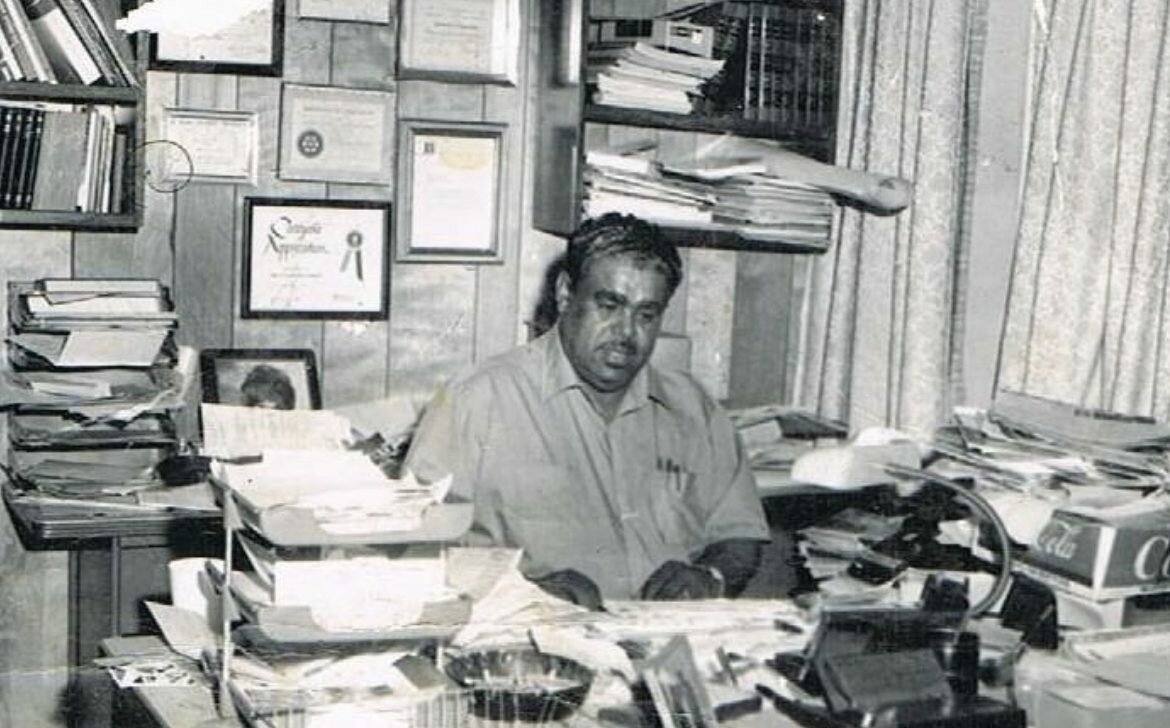
For I Shall Not Pass This Way Again : Remembering Fitzgerald Beaver

The NW Facts Newspaper - www.NWFacts.com
When Diversity Matters Most. The Strength Lies In Differences, Not In Similarities
by Admin NW FACTS Leave a Comment


For a second year, the NW Facts Newspaper is proud to do a feature article on the Port of Tacoma on the subject of diversity in the workplace. This year we are highlighting two port employees; Ricardo Charlton, Port of Tacoma’s maintenance director, and Pat Patterson, assistant director of facilities maintenance.
Originally from the Bahamas, Ricardo Charlton came to the Port of Tacoma four years ago with over 20 years of experience. Before moving to the Pacific Northwest, he worked at ports in Louisiana and Florida. During his years in the industry he experienced many diversity changes, but none of the changes were as positive as he has seen at the Port of Tacoma. When he first came to the port he said he was given a blank slate and was granted the power to hire staff whom he felt were most qualified. He made it his goal to exhaust all avenues to find his new team. Ricardo says, “I made it my personal business to have total diversity … I wanted to create a work environment that reflects what the city of Tacoma looks like.”
Ricardo tells us he’s blessed to work in such a great work environment and to be living in the most beautiful part of the country right now. Among his many jobs, he says working for the Port of Tacoma is, “by far, unequivocally the best job he’s ever had.” Ricardo explains that the leadership as well as the people he works with daily are all outstanding. Ricardo has worked for several other ports around the country and says, “what we have here in Tacoma/Seattle is bar-none the best port there is.”
We also spoke with Pat Patterson, assistant director of facilities maintenance.
Pat is responsible for the facilities side of the day to day operations at the Port of Tacoma properties owned or managed by the Northwest Seaport Alliance (NWSA). He oversees a staff of 38 individuals of diverse backgrounds.
Pat came to the Port three years ago from the Tacoma Housing Authority where he served as the director of property management. The Port’s leadership team told Pat that they hired him to help make a difference. Pat has seen a conscious effort from the top down to make the workplace more diverse, including changes to the hiring process. Pat sees positive changes continuing based on the objectives of the current leadership at the Port and the goals of the NWSA.
Pat adds these wise words, “We have to keep moving – we cannot go backwards. As long as we have an agenda to move forward we are making progress.”
Today the Port of Tacoma employs about 250 people consisting of administration, maintenance, security, and skilled trades. The Port respects and values the rich diversity of its employees, customers, partners, and the community it serves. The Port is also committed to building an inclusive work environment that reflects the demographics of our community.
Founded in 1918, the Port is located on the Tacoma waterfront at the south end of Puget Sound. As the major economic engine for Pierce County, the Port of Tacoma supports more than 29,000 jobs and generates $3 billion in annual economic activity. Together, the Ports of Seattle and Tacoma make up the fourth-largest container gateway in North America and a major center for automobile shipments, bulk, and heavy-lift cargo.
…
If you enjoyed reading this article please like and share.
You can read last year’s article by clicking this link:
https://www.nwfacts.com/embracing-diversity-workplace/

 The Chosen Few and the Museum of Pop Culture (MoPOP) present the 6th year of Through the Eyes of Art, a Black History Month celebration. This annual event brings together artists, community leaders, politicians, and tastemakers from across the state of Washington to celebrate the black experience.
The Chosen Few and the Museum of Pop Culture (MoPOP) present the 6th year of Through the Eyes of Art, a Black History Month celebration. This annual event brings together artists, community leaders, politicians, and tastemakers from across the state of Washington to celebrate the black experience.
This year’s theme is A Salute to Black Comedy, where we’ll explore the history of Black comedy, its place in American pop culture, and its importance as a medium for speaking truth to power and social commentary. Come celebrate the many African American comedic voices that echo through our social consciousness.
Black History Month provides an opportunity to shed light on African American medical pioneers who have made important contributions in sickle cell disease (SCD), a devastating inherited blood disorder that disproportionally impacts the black community and historically lacked innovative treatment options.
 Trailblazers that broke barriers and made important discoveries in an effort to bring hope to the SCD community include: Dr. Roland Scott; considered the father of SCD and instrumental in passing the Sickle Cell Anemia Control Act of 1971; Dr. John K. Haynes; whose research demonstrated that sickle cells are rigid and sickle-shaped due to having too much calcium and not enough water; and Dr. Marilyn Hughes Gaston; known for her study of sickle cell anemia resulting in a nationwide test for newborns.
Trailblazers that broke barriers and made important discoveries in an effort to bring hope to the SCD community include: Dr. Roland Scott; considered the father of SCD and instrumental in passing the Sickle Cell Anemia Control Act of 1971; Dr. John K. Haynes; whose research demonstrated that sickle cells are rigid and sickle-shaped due to having too much calcium and not enough water; and Dr. Marilyn Hughes Gaston; known for her study of sickle cell anemia resulting in a nationwide test for newborns.
Inspired during childhood by a black doctor in his local community of Huntsville, AL, Dr. Ted Love has been a leader in the biopharmaceutical industry over the past two decades following nearly 10 years of experience as a practicing physician. Dr. Love re-joined the industry after an early retirement to help usher a new era of advancements for people with SCD.
SCD occurs in 1 out of every 365 African American births, impacting more than 100,000 people in the U.S.[1]A genetic blood disorder that affects people whose ancestors came from sub-Saharan Africa, Southern Asia, South America and the Middle East, SCD is a lifelong disease that attacks every organ in the body and can cause a wide range of complications, including inflammation, multi-organ damage and failure and early death. Despite the staggering impact of SCD, innovation has lagged for decades, leaving patients with few treatment options and inadequate access to needed healthcare.
Now Dr. Love and the SCD community are excited that the landscape is changing with the U.S. Food and Drug Administration’s recent approval of the first medicine specifically targeting the root cause of SCD – allowing patients to enter the new decade filled with newfound hope.
On Tuesday, February 18, join Ted W. Love, M.D. president and chief executive officer of Global Blood Therapeutics, to discuss the impact that African Americans have made in the treatment of SCD, the changing landscape and what people in the community need to know about the disease.
 Sunday, January 19, 2020 will mark the 14th annual Martin Luther King, Jr., Redeeming the Prophetic Vision, an annual, all volunteer-organized, interfaith community event. It seeks to honor Dr. King’s radical call for peace and justice for ALL people by helping our community to shine the light of his vision on our current local, national, and global situation; re-imagine unity across difference; renew our shared commitment to the path of social justice; and reconnect with peace and justice activists and advocates across our community.
Sunday, January 19, 2020 will mark the 14th annual Martin Luther King, Jr., Redeeming the Prophetic Vision, an annual, all volunteer-organized, interfaith community event. It seeks to honor Dr. King’s radical call for peace and justice for ALL people by helping our community to shine the light of his vision on our current local, national, and global situation; re-imagine unity across difference; renew our shared commitment to the path of social justice; and reconnect with peace and justice activists and advocates across our community.
This inspiring event is produced by The Conversation in partnership with Associated Ministries and Urban Grace Church. Come and hear Dr. Dexter Gordon’s keynote address, and see a dramatic production written and directed by C. Rosalind Bell.
After the main program, come downstairs for light refreshments, conversation, and networking. Over 25 community organizations will be on hand to chat about their programs.
Join The Conversation, Urban Grace Church, and Associated Ministries at Redeeming the Prophetic Vision 2019. Bring your family, friends, colleagues, and neighbors on Sunday, January 19, 2020 at 2:30pm to Urban Grace Church (corner of 9th & Market) in downtown Tacoma. Plan to “fill a row” at Urban Grace!
National Sikh Campaign Celebrates Martin Luther King Jr. Day, Expresses Solidarity With Black Americans Across the Nation
 Ahead of Martin Luther King Jr. Day taking place on Monday, January 20, the National Sikh Campaign issued the following statement:
Ahead of Martin Luther King Jr. Day taking place on Monday, January 20, the National Sikh Campaign issued the following statement:
“Martin Luther King Jr.’s work paved the way for Black Americans, marginalized people, and allies everywhere to stand up for dignity, understanding, and freedom,” said Anjleen Kaur Gumer, Executive Director of the National Sikh Campaign. “Now more than ever, it’s important to celebrate the progress we’ve made while acknowledging the fight isn’t over. We must continue working against racism and discrimination to create a world where everyone is treated with respect.
 “Sikhism’s founder, Guru Nanak, began his work in the 1500s by speaking out against discrimination of women and the poor — a fight for justice that mirrors Dr. King’s hundreds of years later. Sikhs hold Guru Nanak’s values of equality closely, and believe that everyone has access to God, regardless of their background. For this reason, Sikh Americans are honored to stand with our Black neighbors in celebration and solidarity.”
“Sikhism’s founder, Guru Nanak, began his work in the 1500s by speaking out against discrimination of women and the poor — a fight for justice that mirrors Dr. King’s hundreds of years later. Sikhs hold Guru Nanak’s values of equality closely, and believe that everyone has access to God, regardless of their background. For this reason, Sikh Americans are honored to stand with our Black neighbors in celebration and solidarity.”


Fitzgerald Beaver was born January 18, 1922, in Martinsville, Virginia. He graduated from high school in Martinsville and then attended North Carolina A & T College in Greensboro, North Carolina in the late 1930s. Beaver left college without graduating and worked as a railroad porteracross the United States. By the beginning of World War II he had arrived in the Pacific Northwest and was living in the city of Portland, Oregon.
During the war “Fitz” Beaver, as he was now known, worked briefly for the U.S. Army as a civilian employee and then was hired by the Kaiser Company in Portland as a shipyard worker. After the war he briefly resided in North Bend, Oregon where he worked at a local radio station. Finding a career he liked, he moved to Los Angeles, California to pursue radio and public relations training.

In 1955, he returned to Portland and at the age of 33 became a local radio personality known as “Eager Beaver.” In 1961, Beaver moved to Seattle, Washington to manage radio station KZAM-FM, the first black-owned radio station in the Pacific Northwest. He stayed at the station only a few months before launching The FACTS newspaper on September 7, 1961.
The FACTS quickly became a major media presence in black Seattle. The paper’s mission stated: “We try to pick up where the daily papers leave off” meaning the paper would focus on stories not covered by the major daily newspapers but which were of particular interest to black Seattleites. He gave the paper a distinctive “pink” color to separate it from its competitors. By the late 1960s, Beaver authored a popular column called “Right On!” that discussed local and regional issues.
Beaver was an eclectic personality who often clashed with other black journalists over news related to African Americans such as coverage of the race riots in Seattle and across the nation in the late 1960s. His FACTS newspaper also became a community icon. Its office, on the corner of Cherry Street and Martin Luther King Jr. Way, was a familiar landmark in Seattle’s Central District with an old truck situated on top of the slanted roof and a large reader board.

Despite his clashes with other black journalists Beaver also hired numerous young black journalists who went on to other newspapers. Chris Bennett, owner and publisher of a competing African American weekly newspaper, The Medium, and Ernie Foster, publisher of The Skanner newspaper in Portland, Oregon and Seattle, Washington, were aided by Beaver when they established their respective new



An ardent golfer, Beaver was a founding member of the predominantly African American Fir State Golf Club. He also served as president of the Boys and Girls Club in Seattle and worked with the Army, Navy and Coast Guard in minority recruiting programs in the 1970s and 1980s.
 Fitzgerald “Fitz” Beaver died on
Fitzgerald “Fitz” Beaver died on
New Year’s Day, 1992 in Seattle, Washington at the age of 69.
Survivors include his wife, Elizabeth, and their three children, Dennis, Marla, and LaVonne Beaver who are the current publishers of the newspaper.
 Coming together is a beginning, staying together is progress, and working together is success.
Coming together is a beginning, staying together is progress, and working together is success.
www.nwfacts.com
When Diversity Matters The Most …
Amicus brief outlines devastating consequences for women of color, lesbian and transgender Louisianans
In Our Own Voice: National Black Women’s Reproductive Justice Agenda joined partner organization Women With a Vision and other reproductive justice advocates from across the nation in filing an amicus brief in June Medical Services, LLC v. Gee, which challenges Louisiana’s law requiring abortion doctors to have hospital admitting privileges. If allowed to take effect, Louisiana’s Act 620 would leave only one doctor to provide abortion care in the entire state. In Our Own Voice: National Black Women’s Reproductive Justice Agenda founder and President, Marcela Howell, issued the following statement:
“Black women are strong, resilient and ready to fight against this latest attack on our most basic human right to reproductive autonomy. We saw the writing on the wall with Justice Brett Kavanaugh’s egregious nomination and angry confirmation hearing — our civil rights are up for debate by lawmakers more interested in defending white, male patriarchy than protecting women of color and the LGBTQ+ communities’ health and safety.
“Reproductive Justice demands that we have the right to control our bodies, our sexuality, our gender, our work and our reproduction. Systemic racism and sexism have presented enormous barriers for Black women, femmes, queer, trans and gender non-conforming people, and youth to safe, affordable healthcare access. As the U.S. Supreme Court prepares to hear a case already decided with Whole Woman’s Health v. Hellerstedt three years ago, we call on the justices to uphold precedent and protect the right to abortion for all Louisianans.”
About the case:
June Medical Services sued the state of Louisiana to challenge the constitutionality of a Louisiana law that requires doctors providing abortions in the state to have admitting privileges at a hospital within 30 miles of the place where the doctor provides abortion care. The federal district court ruled for the abortion providers, finding that the law is unconstitutional, however, the federal appeals court reversed, finding that the law is constitutional. The Supreme Court subsequently granted June Medical Services’ request to review the Louisiana law, with oral arguments scheduled on March 4, 2020. As noted in the amici filed before the court:
“Act 620 will impose on marginalized populations in Louisiana, who ‒ because of structural racism, discrimination and economic disadvantage, among other factors ‒ have been denied access to necessary reproductive healthcare services. These communities already experience disproportionately high maternal mortality rates and other adverse reproductive health outcomes. Act 620 will effectively cut off access to abortion services and related health services in Louisiana for marginalized populations in violation of their human rights.”
 PFML has the potential to boost health and economic security for all families and to greatly reduce health and other disparities by race, gender, and income. These positive impacts could be especially beneficial for African-American and other communities of color.
PFML has the potential to boost health and economic security for all families and to greatly reduce health and other disparities by race, gender, and income. These positive impacts could be especially beneficial for African-American and other communities of color.